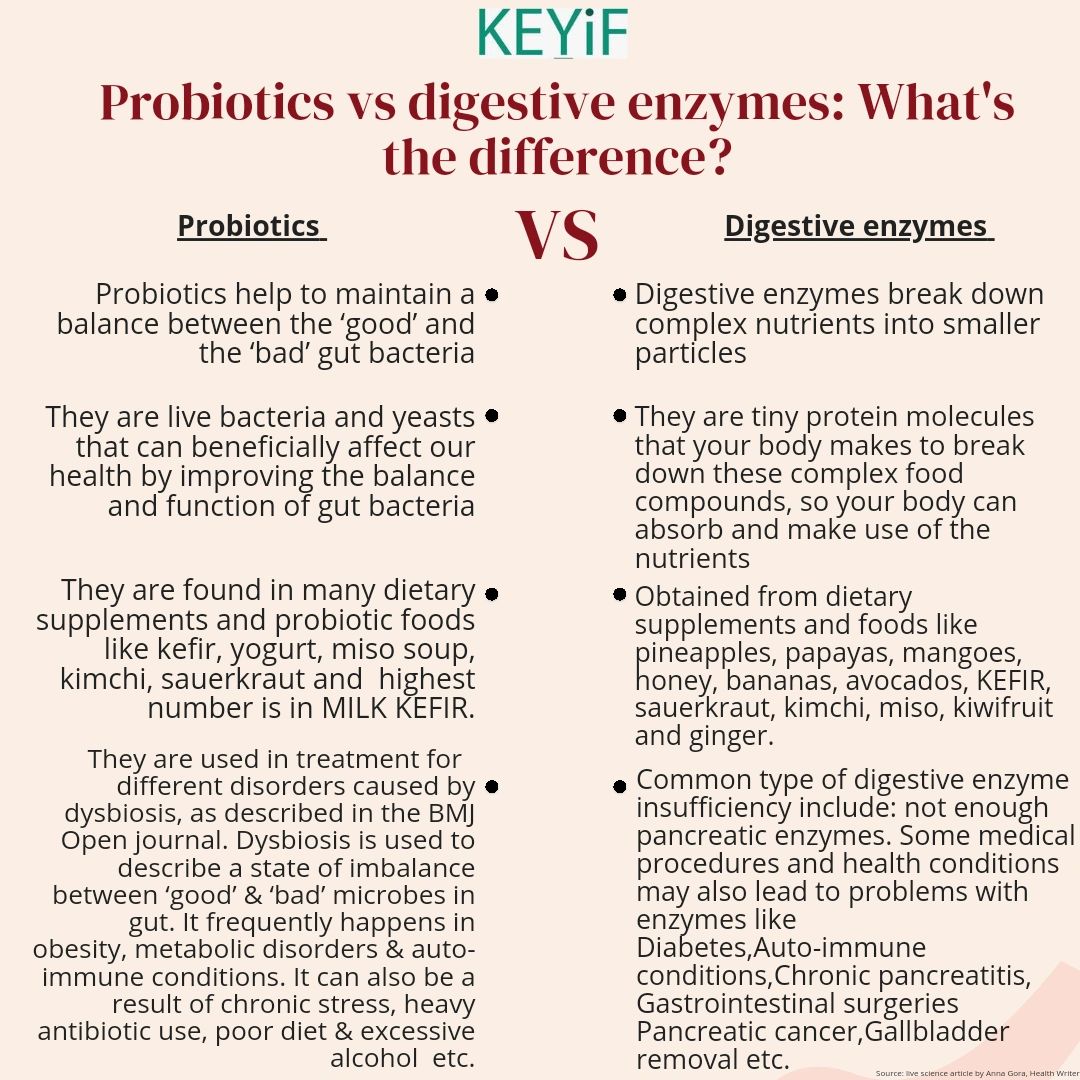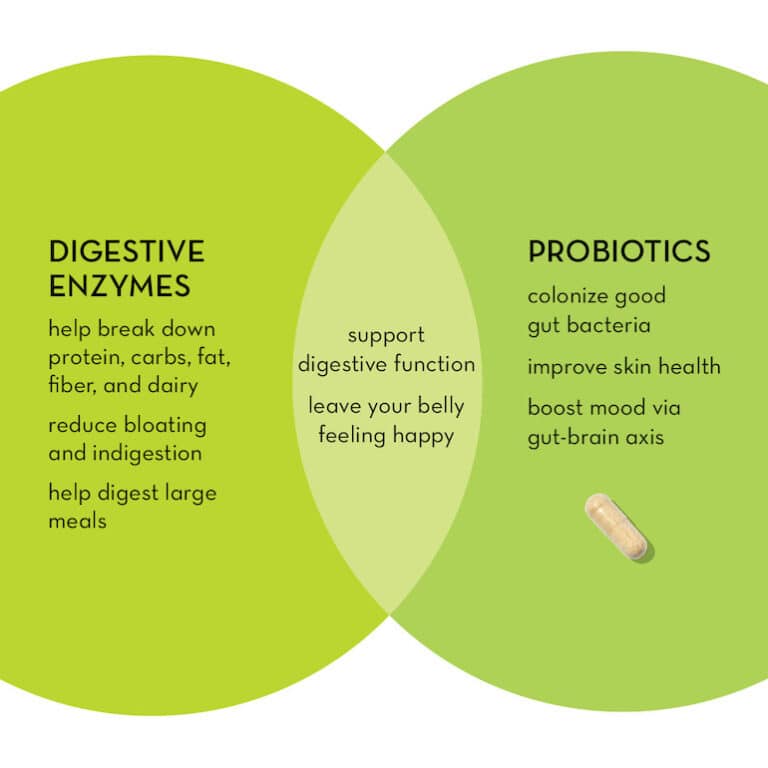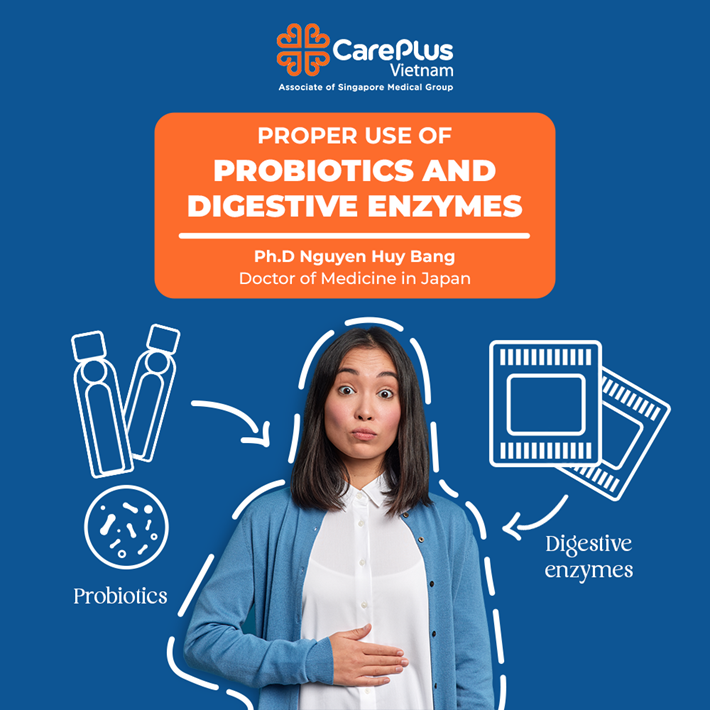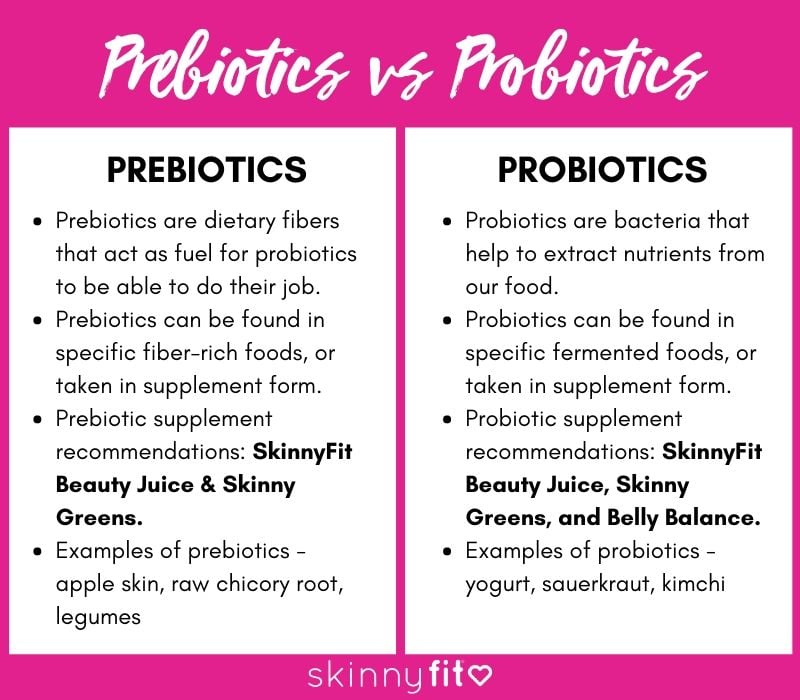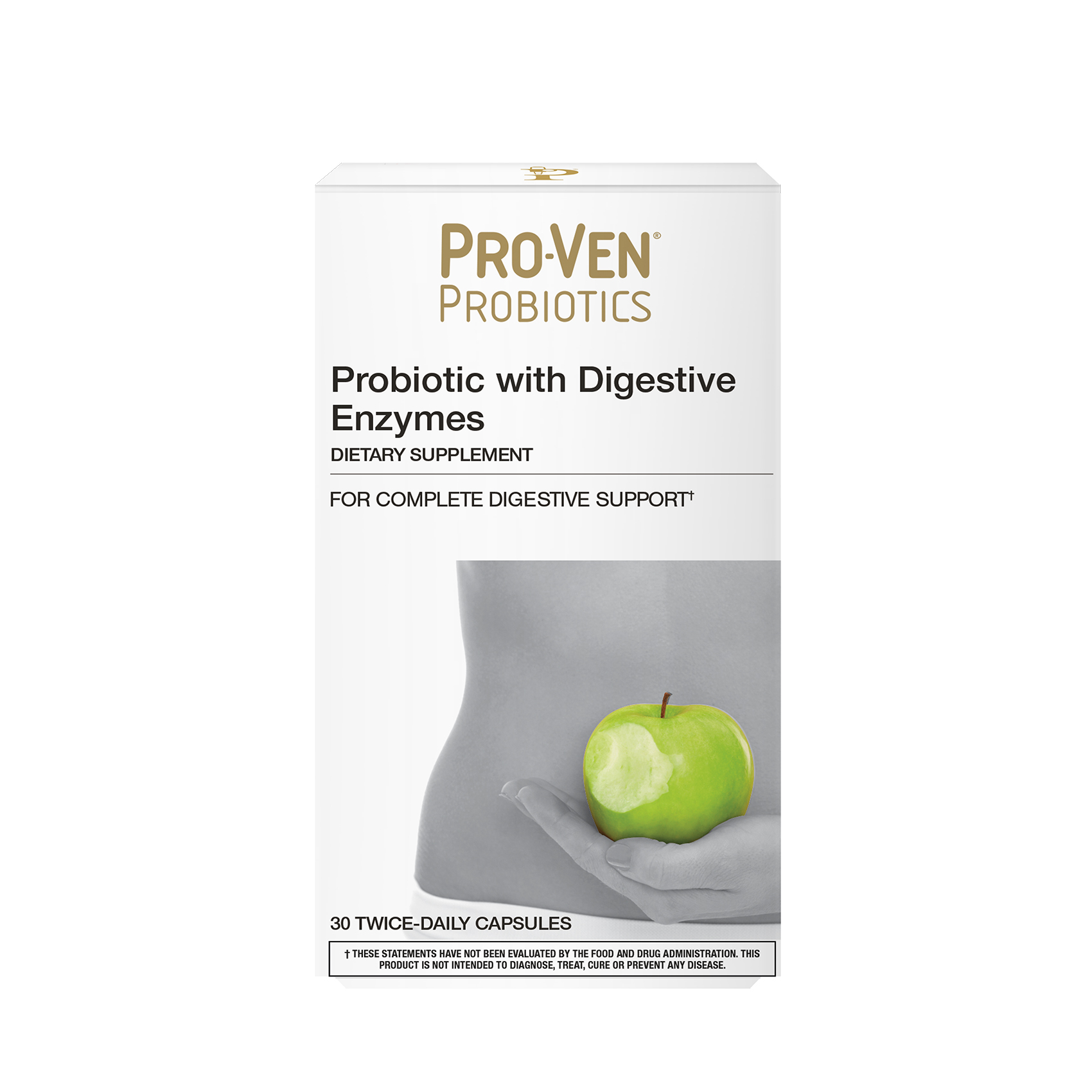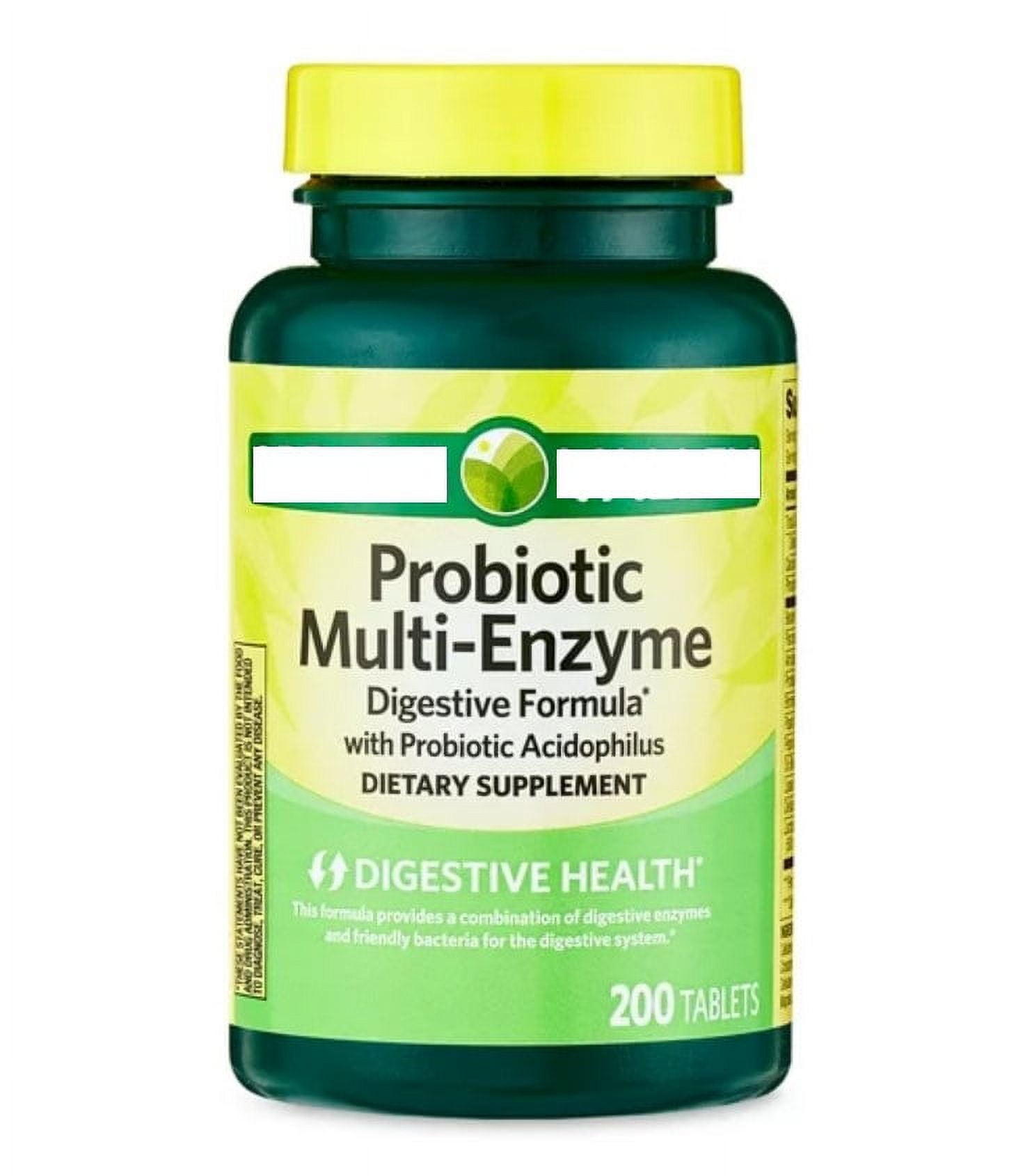Are Probiotics The Same As Digestive Enzymes

Confusion reigns: Are probiotics and digestive enzymes interchangeable? The answer, definitively, is no. These distinct substances play vital but different roles in gut health, demanding separate understanding and usage.
This article cuts through the misinformation, providing a crucial understanding of probiotics versus digestive enzymes. Knowing the difference is paramount for making informed health decisions, impacting everything from bloating to nutrient absorption. We deliver the core facts, without the fluff.
Probiotics: The Gut's Microbial Allies
Probiotics are live microorganisms—bacteria and yeasts—that confer a health benefit on the host when administered in adequate amounts. The World Health Organization (WHO) defines them as such.
They primarily work by repopulating the gut with beneficial bacteria. This helps to restore balance, particularly after antibiotic use or during periods of digestive distress. Think of them as reinforcements for your existing gut army.
Who benefits? Individuals experiencing diarrhea, irritable bowel syndrome (IBS), or those simply aiming to maintain a healthy gut microbiome are common users. Lactobacillus and Bifidobacterium are among the most researched and frequently used probiotic strains.
Where Do You Find Probiotics?
Probiotics are widely available in fermented foods like yogurt, kefir, sauerkraut, and kimchi. They also come in supplement form: capsules, powders, and liquids are readily accessible.
Be aware that not all probiotic supplements are created equal. Look for products with clearly labeled strains and CFU (colony-forming units) counts. Consulting a healthcare professional is crucial to determine the appropriate strain and dosage for your specific needs.
Digestive Enzymes: Catalysts for Digestion
Digestive enzymes, on the other hand, are proteins that speed up chemical reactions in the body, specifically those involved in breaking down food. They are essential for nutrient absorption. Think of them as tiny scissors cutting food into smaller, more manageable pieces.
The body naturally produces digestive enzymes in the pancreas, stomach, and small intestine. Amylase breaks down carbohydrates, protease breaks down proteins, and lipase breaks down fats.
Who needs digestive enzymes? People with pancreatic insufficiency, lactose intolerance, or those experiencing bloating and gas after meals may benefit from enzyme supplementation. Age and certain medical conditions can also impact enzyme production.
Sources of Digestive Enzymes
While the body produces its own, supplemental digestive enzymes are available. These can be derived from animal sources (e.g., pancreatin), plant sources (e.g., bromelain from pineapple, papain from papaya), or microbial sources.
Enzyme supplements are typically taken before or with meals. They can alleviate symptoms of indigestion and improve nutrient absorption, especially in individuals with enzyme deficiencies.
Probiotics vs. Digestive Enzymes: Key Differences
The crucial distinction: probiotics are living organisms that alter the gut microbiome's composition, while digestive enzymes are proteins that aid in breaking down food. They act in fundamentally different ways.
Probiotics focus on long-term gut health and immune function by populating the gut with beneficial bacteria. Digestive enzymes provide immediate relief from digestive symptoms by improving food breakdown.
Taking probiotics won't compensate for a lack of digestive enzymes, and vice versa. They are complementary but not interchangeable. Recognizing this difference is key to effective gut health management.
Why the Confusion?
The confusion arises from the shared goal of promoting digestive health. Both probiotics and digestive enzymes aim to improve gut function, leading to potential misunderstandings.
Marketing often blurs the lines, using vague terms like "digestive support" without clearly specifying the mechanism of action. This can lead consumers to believe they are interchangeable when they are not.
Many individuals self-diagnose digestive issues, potentially misattributing symptoms to an imbalance that requires one supplement over the other. Accurate diagnosis by a healthcare professional is essential.
What To Do Next
If you are experiencing persistent digestive issues, consult a doctor or registered dietitian. They can accurately assess your condition and recommend the appropriate interventions, whether it's probiotics, digestive enzymes, or a combination of both.
Do not self-treat serious digestive symptoms. Relying solely on over-the-counter supplements without professional guidance can mask underlying medical conditions.
Stay informed about the latest research on gut health and the different roles of probiotics and digestive enzymes. Knowledge is your best defense against misinformation.

